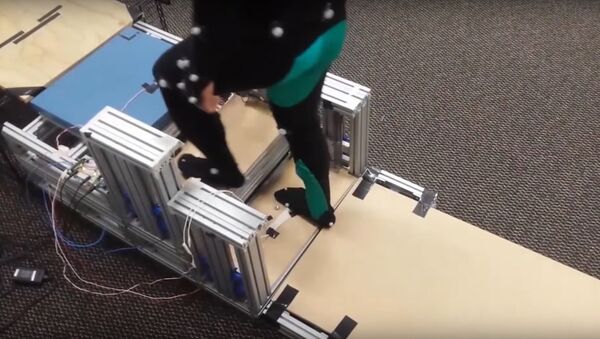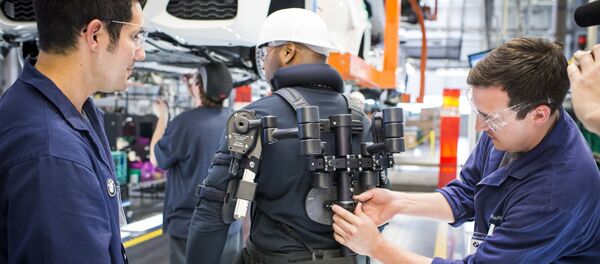The equipment is placed on top of existing, ordinary stairs, and reduces the amount of work the legs, knees and ankles need to do in order to scale them. The researchers say that the invention could be useful for people with mobility impairments, who find it difficult to scale a flight of stairs. Such people often stop using stairs completely, which can make their mobility problems even worse.
"Our objective was to design, build, and test energy-recycling assistive stairs (ERAS) that store energy during stair descent and return it to assist the user during stair ascent," they wrote in their paper, published in the journal Plos One.
"ERAS stores energy that is usually absorbed by the trailing leg during stair descent. Although further investigation is required, this reduction in negative work could possibly reduce the metabolic cost of stair descent, and also reduce muscle and joint forces that cause pain. Similarly, stored energy in the ERAS is returned to users during stair ascent, showing a trend towards reducing the amount of positive work generated by the user. This could also lead to reduced metabolic energy as well as muscle and joint forces during stair ascent."
The technology is ideal for people who are still able to use steps, albeit with difficulty. It could enable them to keep using stairs and maintain better mobility. It also presents a low-cost alternative to installing escalators, elevators and stair lifts.



